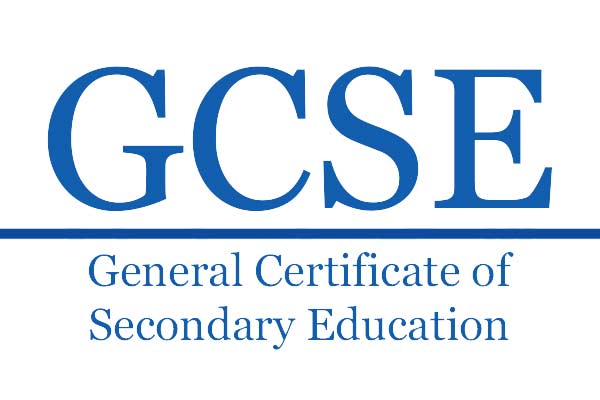Is Business GCSE Hard? A Clear Answer with Context
Many students wonder whether Business GCSE is a difficult subject to study. While some students find it easy and enjoyable, others may need help with certain aspects of the subject.
This article will explore whether Business GCSE is hard and provide insights into what makes it challenging for some students.
Business GCSE covers various topics related to running a business, such as marketing, finance, and human resources.
While some students may find these topics interesting and engaging, others may need help understanding the concepts and theories.
In addition, Business GCSE requires students to be able to analyze and interpret data, which can be challenging for some students who may need a strong background in mathematics or statistics.
Understanding GCSE Business
GCSE Business Studies is a popular subject for students interested in learning about business.
This course is designed to teach students about the different aspects of running a business, including finance, marketing, and management.
The GCSE Business Studies exam consists of two main parts, each comprising three sections. In the initial segment, students are evaluated on their grasp of business concepts and understanding of relevant issues.
The second part of the exam asks students to apply their knowledge to various contexts, such as case studies.
The course is split into three units. The first unit covers the basics of business, including the different types of businesses, the role of stakeholders, and the importance of business aims and objectives.
The second unit focuses on large businesses, including their structure, ownership, and management. The third unit covers the different types of businesses and their role in the economy.
🌟 Hey Students! 🚀 Ready for the ultimate experience? Join us on Studentsinside.com's Facebook, YouTube, WhatsApp, and LinkedIn. Click now for tips, fun, and success vibes! 🌈✨ #StudentLife #JoinUs
Overall, the GCSE Business Studies exam is relatively easy. However, students will need to have a good understanding of the subject matter and be able to apply their knowledge to real-world situations.
Students interested in pursuing a business career may find this course helpful in developing their skills and knowledge.
Some tips for success in GCSE Business Studies include:
- Paying attention in class and taking good notes
- Completing all assignments and homework on time
- Reviewing key concepts and terms regularly
- Practicing past exam papers to get a feel for the format and types of questions that may be asked.
Exam Structure and Content
Exam Format
The GCSE Business exam spans 1 hour and 45 minutes, carrying 100 marks, and is divided into two sections. Section A involves answering 30 multiple-choice questions, each valued at one mark.
These questions encompass various topics outlined in the GCSE Business specification. Section B, on the other hand, comprises longer, structured questions.
In Section B, students will be asked to answer three structured questions, each worth 20 marks. The questions will be based on a pre-released case study that students will have studied in advance.
Course Content
The GCSE Business course covers various topics, including marketing, finance, human resources, and operations management.
Students will also learn about business ownership, business aims and objectives, and the impact of external factors on businesses.
The course is split into four themes:
Investigating Small Business: In this theme, students will learn about the characteristics of small businesses, how they are set up and managed, and the challenges they face.
Building a Business: This theme covers business planning, marketing, and finance. Students will learn how to develop a business idea and create a business plan.
Business Finance: In this theme, students will learn about the different sources of finance available to businesses, how to manage cash flow, and how to calculate profit and loss.
External Influences: This theme covers external factors affecting businesses, such as economic, environmental, and ethical factors.
Difficulty Level
Perception of Difficulty
Students and teachers perceive Business Studies GCSE as a moderately difficult subject. According to student polling, Business Studies is ranked as the 8th hardest GCSE subject out of 13. However, this perception of difficulty can vary depending on the student’s strengths and interests.
Some students may find the subject challenging due to the terminology and concepts they need to learn. Others may find it easier because the subject is practical and can be related to real-life situations.
Pass Attainment Rates
Pass attainment rates for Business Studies GCSE are generally good. In 2022, the pass rate for grades C/4 or above was 68.4%, higher than the national average pass rate of 61.7% for all GCSE subjects.
According to Ofqual, the difficulty level of a GCSE subject is determined by the proportion of students who achieve a grade of 4 or above. Based on this measure, Business Studies is considered a moderately difficult subject.
Topics Covered
The GCSE Business course covers a range of topics that are essential for understanding how businesses operate. These topics include marketing, finance, and human resources.
Marketing
Marketing is the process of promoting and selling products or services. It involves identifying customer needs, developing products to meet them, and creating advertising campaigns to promote them.
In the GCSE Business course, students will learn about marketing strategies businesses use, such as market research, segmentation, and targeting. They will also learn about the marketing mix, which includes product, price, place, and promotion.
Finance
Finance is the management of money. In the GCSE Business course, students will learn about the different sources of finance available to businesses, such as loans, overdrafts, and shares.
Students will discover financial statements like profit and loss accounts and balance sheets. They’ll also understand why cash flow, budgeting, and financial planning are essential.
Human Resources
Human resources (HR) is the management of people within a business. In the GCSE Business course, students will learn about the different functions of HR, such as recruitment, training, and performance management.
Students will learn about various employment contracts, including full-time and part-time arrangements. Additionally, they will understand the significance of equal opportunities and workplace health and safety.
Revision Techniques
Revision Tips
When revising for GCSE Business, it is crucial to have a solid revision strategy in place. Here are some valuable tips to help students make the most of their revision time:
Start early: It is essential to give yourself enough time to cover all the topics in the syllabus. Starting early will also give you enough time to identify and work on your weak areas.
Make a revision timetable: A revision timetable can help you stay organized and focused. It should include all the topics you need to cover, as well as breaks and time for relaxation.
Use active revision techniques: Passive revision techniques, such as re-reading notes, are ineffective. Active techniques such as creating mind maps, flashcards, and quizzes are more effective in improving memory recall and understanding.
Practice past papers: Practicing past papers can help you identify areas where you need to improve and get used to the exam format.
Memory Techniques
Memory techniques can help students remember important information. Here are some memory techniques that can be used when revising for GCSE Business:
Mnemonics: Mnemonics are memory aids that use associations to help remember information. For example, the acronym “PESTLE” can be used to remember the six macro-environmental factors that affect businesses (Political, Economic, Sociocultural, Technological, Legal, and Environmental).
Visual aids: Diagrams, mind maps, and flowcharts are great student tools. They make it easier to remember information by showing it visually.
Repetition: Repetition is an effective way of improving memory recall. Repeating information several times can help students remember it better.
Chunking: Breaking down information into smaller chunks is known as chunking. This process can enhance the comprehension and retention of complex topics.
Career Prospects
Completing a Business Studies GCSE can lead to various career prospects, including jobs, apprenticeships, A-levels, and university degrees. Employers seek candidates who understand business concepts, including finance, marketing, and management.
One potential career path for those with a Business Studies GCSE is to become an entrepreneur.
Students who have studied business at the GCSE level understand the fundamentals of running a business and can apply this knowledge to their ventures.
They can also use their knowledge in various business-related roles, such as marketing, finance, or management.
Another option for students with a Business Studies GCSE is to pursue further education. They can study A-levels in Business Studies or a related subject, such as Economics.
This can lead to various university degree options, including business, finance, and marketing.
Employers value candidates with a strong academic background in business-related subjects, and a degree in a related field can lead to various job opportunities.
Apprenticeships are another option for students with a Business Studies GCSE. Many employers offer apprenticeships in business-related fields, such as accounting or marketing. Apprenticeships provide on-the-job training and can lead to a full-time job with the employer after completion.
Comparison with Other GCSE Subjects
Business vs Science
Regarding GCSE subjects, science is often considered one of the hardest. However, how does the business compare?
While science subjects such as physics and biology require a lot of memorization and understanding of complex concepts, business is more about applying practical knowledge to real-world scenarios.
In terms of exam difficulty, business may be easier than science subjects. The business GCSE exam typically consists of multiple-choice and short-answer questions, whereas science exams often require longer written responses and calculations.
Business vs Humanities
Humanities subjects such as history and English literature are often considered challenging due to the amount of reading and writing involved.
However, businesses may need more work to understand complex economic concepts and analyze data.
Regarding the exam structure, humanities exams often require essay-style responses, whereas business exams typically consist of multiple-choice and short-answer questions.
Here is a table comparing Business GCSE to other popular GCSE subjects:
| Subject | Exam Structure | Difficulty |
|---|---|---|
| English | Essay-style responses | Moderate |
| Maths | Long written responses and calculations | Difficult |
| Science (Physics, Biology, Chemistry) | Long written responses and calculations | Very Difficult |
| History | Essay-style responses | Moderate |
| Further Maths | Long written responses and calculations | Very Difficult |
| English Literature | Essay-style responses | Moderate |
| English Language | Short answer questions and essay-style responses | Moderate |
| Religious Studies | Short answer questions and essay-style responses | Moderate |
| Geography | Short answer questions and essay-style responses | Moderate |
| Economics | Short answer questions and essay-style responses | Moderate |
| Law | Short answer questions and essay-style responses | Moderate |
| Modern Foreign Languages | Short answer questions and essay-style responses | Moderate |
| Design and Technology | Short answer questions and practical assessments | Moderate |
| Music | Short answer questions and practical assessments | Moderate |
Note: Difficulty levels are subjective and can vary depending on the student’s strengths and weaknesses.








